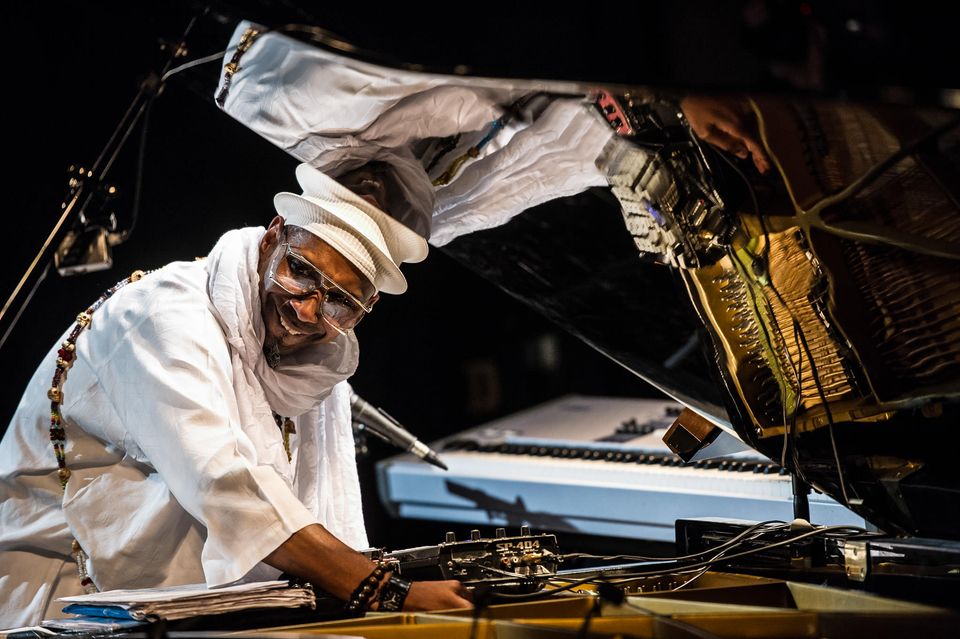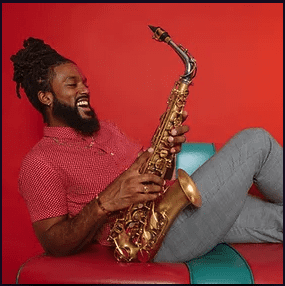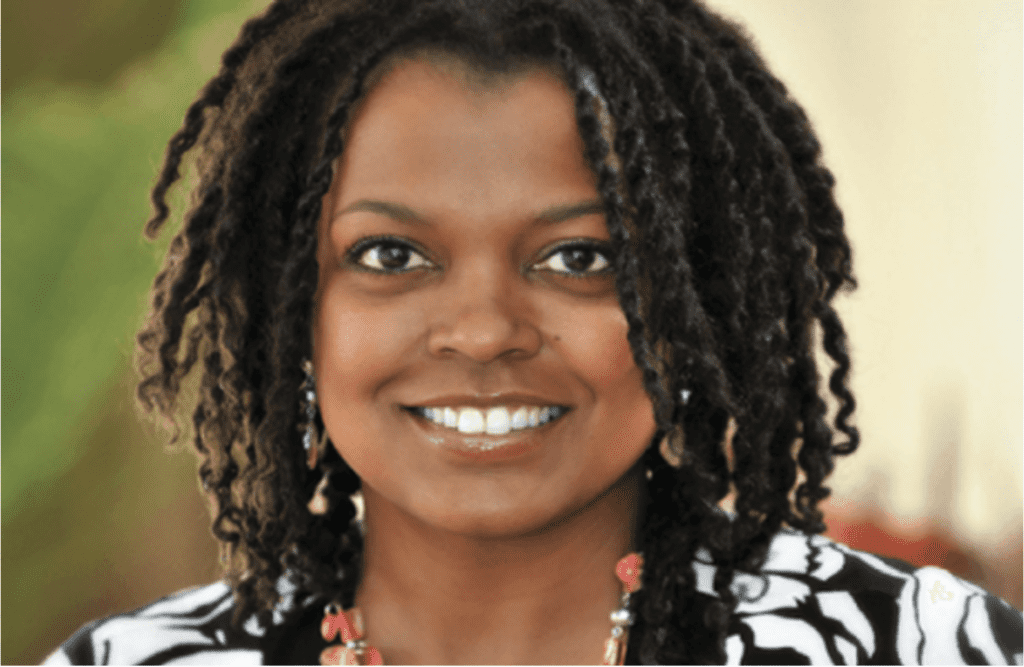DC Jazz Festival: A Showcase from Around the World
By • August 28, 2023 0 1612

This year’s D.C Jazz Festival, August 30 to September 3, will showcase “Jazz as a global brand,” and celebrate Washington D.C.’s historic role as an incubator of a distinctly American brand of music with artistic and cultural influence around the world.
Recognized internationally for its “rich cultural heritage rooted in the African-American experience… [Jazz], since its inception, has contributed to and been a reflection of American culture and is widely considered to be the only truly original American art form,” JazzinAmerica.org writes. It’s also one of America’s greatest cultural exports.
While many jazz aficionados know Washington, D.C. as home to Duke Ellington – perhaps the greatest jazz composers in American history – and that other major names in jazz history launched their careers in the nation’s capital (Dizzy Gillespie, Lena Horn, Cab Calloway, Betty Carter, Billy Eckstine, Johnny Hodges, Jelly Roll Morton, Lester Young, Fats Waller, etc.), fewer know that D.C. was once home to numerous jazz neighborhoods – Georgetown among them – with highly influential jazz clubs (the Howard Theatre, the Crystal Caverns, the Paramount Theater, the Lincoln Colonnade, the Suburban Gardens, Martin’s Tap Room, and on and on) where jazz stars grew to international fame. Be-Bop was even launched in Washington with Billy Eckstine’s band, showcasing the new form at the Howard Theatre.
Throughout the 20th century, jazz could not be contained, rapidly spreading around the world as it became associated with American democratic “free-spirited” trends of individualized call-and-response improvisation and new off-beat, swinging expressions of soulful melody. When fascism and communism abroad denounced and banned American jazz as “decadent,” “bourgeois,” or “counter-revolutionary,” the U.S. Department of State sent jazz “cultural ambassadors” on global tours to give voice to this liberalizing sense of free musical expression – sending the roots of jazz music around the world. And Washington, D.C. was often the springboard to this international jazz diplomacy.

BIRCKHEAD will be playing at the Wharf Sept 3.
The Georgetowner spoke with Sunny Sumter, president and CEO of the DC Jazz Festival – now in its 19th year – about the global dimensions of the festival this year.
Georgetowner: So, can we discuss the significance of the international dimensions of the DC Jazz Festival?
Sumter: Well, jazz is a global brand now. And much of its sustainability lies in how jazz has traveled since its inception to various countries. It’s been adopted in countries’ cultures and their own folk musics. And jazz has found a presence because its spirit of improvisation is really front and center.
I often think about when Charlie, Charles Fishman, who’s the founder of the DC Jazz Festival, used to manage Dizzy Gillespie who was a jazz ambassador — you know, part of the U.S. Department of State’s Jazz Ambassador program. Gillespie used to travel all around the world and Charlie was his road manager and traveled with him. And when Charlie came back and started the festival, he would often have these great stories about how so much community was built around jazz and the spirit of the ties that bind us as humans and our desire to create community. And we may not even speak the same common language, but those ties are built from the common language of jazz. I think that’s really the essence of how this whole idea started around building the Fishman Embassy Series which was named in his honor.
Georgetowner: So, this year’s series involves the embassies of Cuba, Iceland, Italy and France?
Sumter: Yes, they’re our partners this year. You know, we have such great long-standing partnerships with about 25 of the embassies, all up and down Embassy Row and throughout D.C., and every year we choose the partners we’ll work with throughout the year. So, we go to their home – their embassy – earlier in the year, and then we do a culminating event during the Jazz Fest. So, in this case, we had a great partnership with the Embassy of France at their embassy earlier, and then we decided that we’d bring Isabel Olivier – she’s a great harpist – just charming. We’d bring her sound to the Transit Pier at The Wharf [Sept. 2]. We decided to partner with Villa Albertine which is the cultural arm of the Embassy of France. So, it’s a complete partnership. They’ll be bringing her. That concert is called “Presented By,” by Villa Albertine and the DC Jazz Fest.
And then in the case of Luda Vica Burtone who is a really beautiful violinist, we also did an event where we featured Berto Gamborini and performed at the Italian residence. And we said ‘Let’s do something fabulous for Jazz Fest for Luda Vica!” So, Luda Vica is performing at The Wharf on September 3. And then she’s returning to the Italian Residence for a free public concert September 5.
And then with the House of Sweden which is part of the Nordic community, we have a great partnership with the Embassy of Iceland…. We have a fantastic partnership with the Nordic Jazz Fest in June where we worked with the Embassies of Finland and Sweden to present artists from their countries and artists from our country as well. In fact, the Duke Ellington Jazz Combo performed at the House of Sweden. And when we said, “Well, what are we going to do – Let’s do something fun,” we said, “Let’s bring in the Embassy of Iceland and have them bring in their artists.” …. The House of Sweden is a lovely venue to present music. So, we said ‘Let’s do something in Georgetown,’ because we are city-wide – So we’ll have a presence in Georgetown and so we’ll have opening night at the House of Sweden, featuring The String Queens, which is a real rising star ensemble hear in D.C. and also featured is Sunna Gunnlaugs. Suna is a brilliant pianist and she’s bringing her trio. So, they’re going to open the Jazz Fest on the 30th. So you can see the international piece really flowing throughout the festival.
And then with the Embassy of the Republic of Cuba, we did this fantastic concert with Melvis Santa who is a singer, pianist and percussionist – a multidimensional artist at the Embassy of Cuba during Jazz Appreciation Month in April… So, we have a two-year partnership with the Embassy of Cuba to really collaborate around jazz and diplomacy and culture – cultural diplomacy. Our next step will be presenting Arturo O’Farrill and the Afro Latin Jazz Ensemble at the DC Jazz Fest on The Wharf along with Omar Sosa, another fine pianist…. And Arturo O’Farrill is going to do a salsa set on Saturday. And then Omar Sosa and his group are also performing. So we’ll have two representatives of Cuban artists at DC Jazz Fest at The Wharf. And that’s a two-year partnership. So, we are cooking up something for 2024.
Georgetowner: So, for people who aren’t so familiar with jazz, what would you say about DC as a jazz capital or a world capital of jazz?
Sumter: So, the interesting thing about D.C. is that jazz education is really strong in the region, largely because we have 19 colleges and universities stretched out across the region, and many of them have jazz departments in their music programs. So those college students start going out and playing music in clubs and restaurants and hotels and really making the jazz scene. And then some of them end up staying and having a professional jazz career here in DC. And we also have some great jazz academies like the academy in Montgomery County that is directed by Paul Carr. And then Howard University has a very rich jazz program. And the University of the District of Columbia. So there’s a very rich jazz education platform. And there really is just a great opportunity to provide musicians a place to play. And some of those musicians don’t go on to become jazz artists. You know, our chairman, Peter Gillen, he’s a jazz drummer, but he’s also an attorney for Pillsbury [laughs]…. So they may not go on to pursue jazz as a professional endeavor but they certainly become jazz fans. So D.C’s a unique city in that it really has a strong jazz audience. And I think the mix of jazz artists and the jazz audience really builds a strong jazz community. So it’s a reason we’ve really become quite a jazz hub – for jazz in the world….

Sunny Sumter, president and CEO of DC Jazz Festival.
Georgetowner: And is it also because D.C. is the historic home of Duke Ellington and others and we have the clubs they launched from, like Blues Alley in Georgetown?
Sumter: You can’t talk about jazz without mentioning Blues Alley. It’s one of the most important jazz clubs in the world. And Harry Schnipper’s done a really fantastic job of keeping that club going strong and having really great talent performing in the club. So I do think you’re right, it being the home of Duke Ellington and others, like Shirley Horn or Sonny Stitt, that the city really has a long legacy of jazz, and especially jazz on U Street and in particular where the Howard Theater is – there’s so much history there.
Georgetowner: Are you a jazz artist, yourself?
Sumter: I have a jazz degree from Howard University and I majored in Music Business and minored in Jazz Studies. And I have a performing career of about 20 years before I became a mom. And I’m glad to be on the business side as a ‘jazz champion’ – I call myself – really helping to spearhead this great music and to keep it driving. But I come at it first as an artist.
Georgetowner: You were a singer or did you play an instrument?
Sumter: I am a singer [laughs]. Yes, I am a singer.
Georgetowner: Why do you think jazz as a musical form speaks across language and cultural barriers? What is universal about it? Is it because it’s a flexible form? Or, because of its soulfulness?
Sumter: I think that jazz and the spirit of improvisation is really inspiring for the artist who’s making it and the surprise of jazz is inspiring for the audience because when you go to hear music or a concert and you hear a song you’ve heard on the radio and it’s performed that same way, you would expect that. But the uniqueness of jazz as a musical form is that you never know what you’re going to get when you go into a jazz hall or a jazz performance space. The music happens on the bandstand. There’s something magical about that that makes jazz really unique and helps explain why people are so attracted to it.
Georgetowner: Like the artist is discovering and expressing at the same time, and the audience is going along on the journey.
Sumter: And they’re ‘going along on the journey.’ That should be your piece. That was great! [laughs]
Georgetowner: Do you think jazz will always be around and something young people will pick up. Or will it run its course?
Sumter: I think jazz is a dynamic art form. It thrives and shifts with community which is why you find so many forms of jazz under the umbrella of jazz. I mean, you have hip-hop artists. Look at Robert Glassburn and what he’s doing with jazz now…. He combines hip-hop and jazz and I think he does it very well. Just as Miles Davis did Be-Bop and then shifted into Cool Jazz. And then you had a whole free period of jazz during the whole Civil Rights movement in the 60s. Or the Big Band era with all the dance music of the 40s and the 50s. So I think jazz has a longstanding role and will continue to have such a role in society especially now that it’s a global brand. I think it really has incredible staying power.
Georgetowner: Anything else you’d like to add?
Sumter: I think we should be excited that our artistic director Willard Jenkins won the National Endowment of the Arts Jazz Master Award this year…. He’s such a force in jazz right now. Not only is he the artistic director of the DC Jazz Festival, but he’s an analyst [of jazz] and a writer who just wrote a book called “Ain’t But a Few of Us” he’s touring right now. He’s also a video personality at WPFW, and a curator, and he’s really respected as an internationally-renowned jazz icon…. And we’re so fortunate to have him as our executive director.
For more information on the DC Jazz Festival, Aug. 30 – Sept. 3, go to DCJazzFest.Org.

